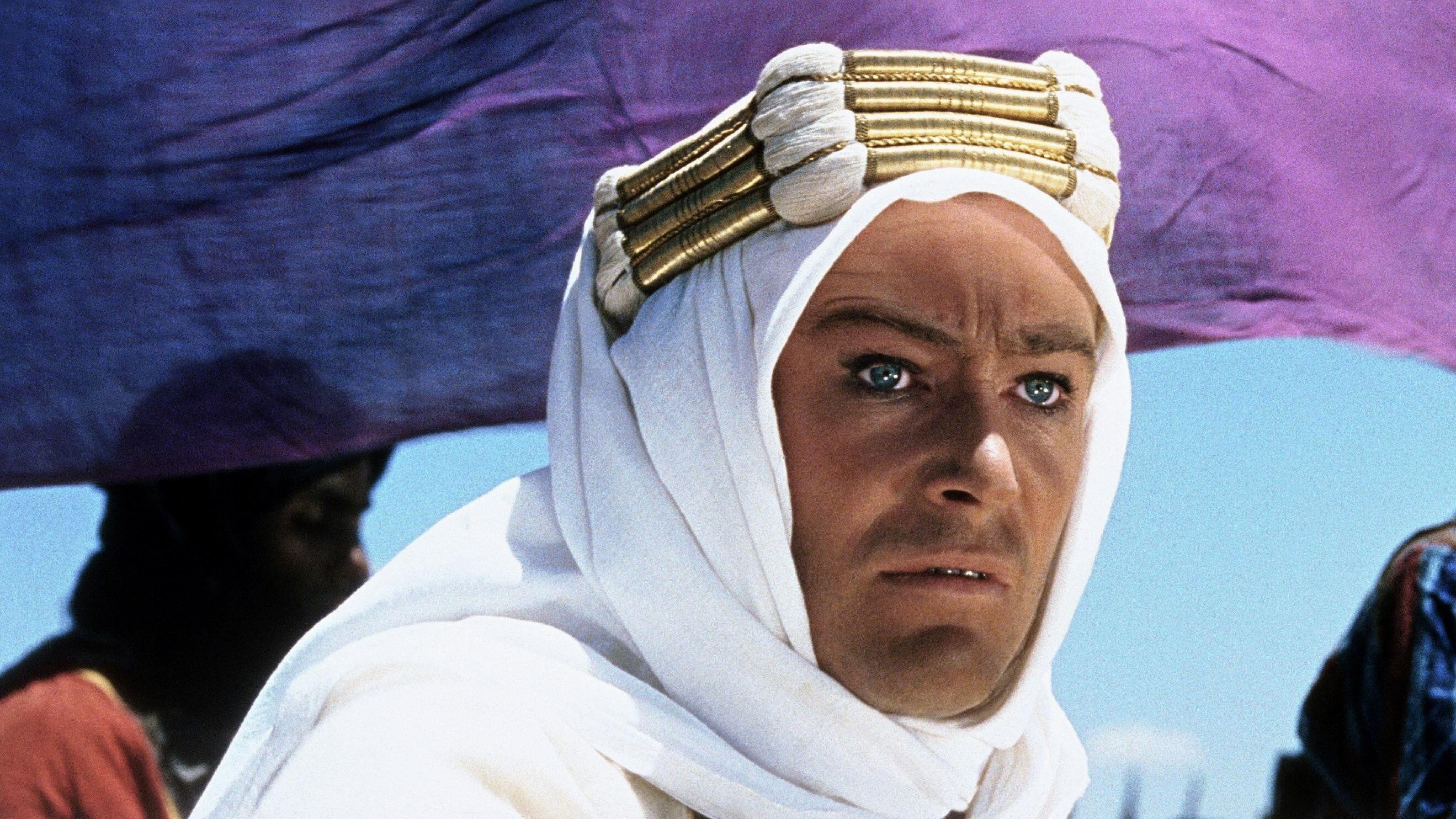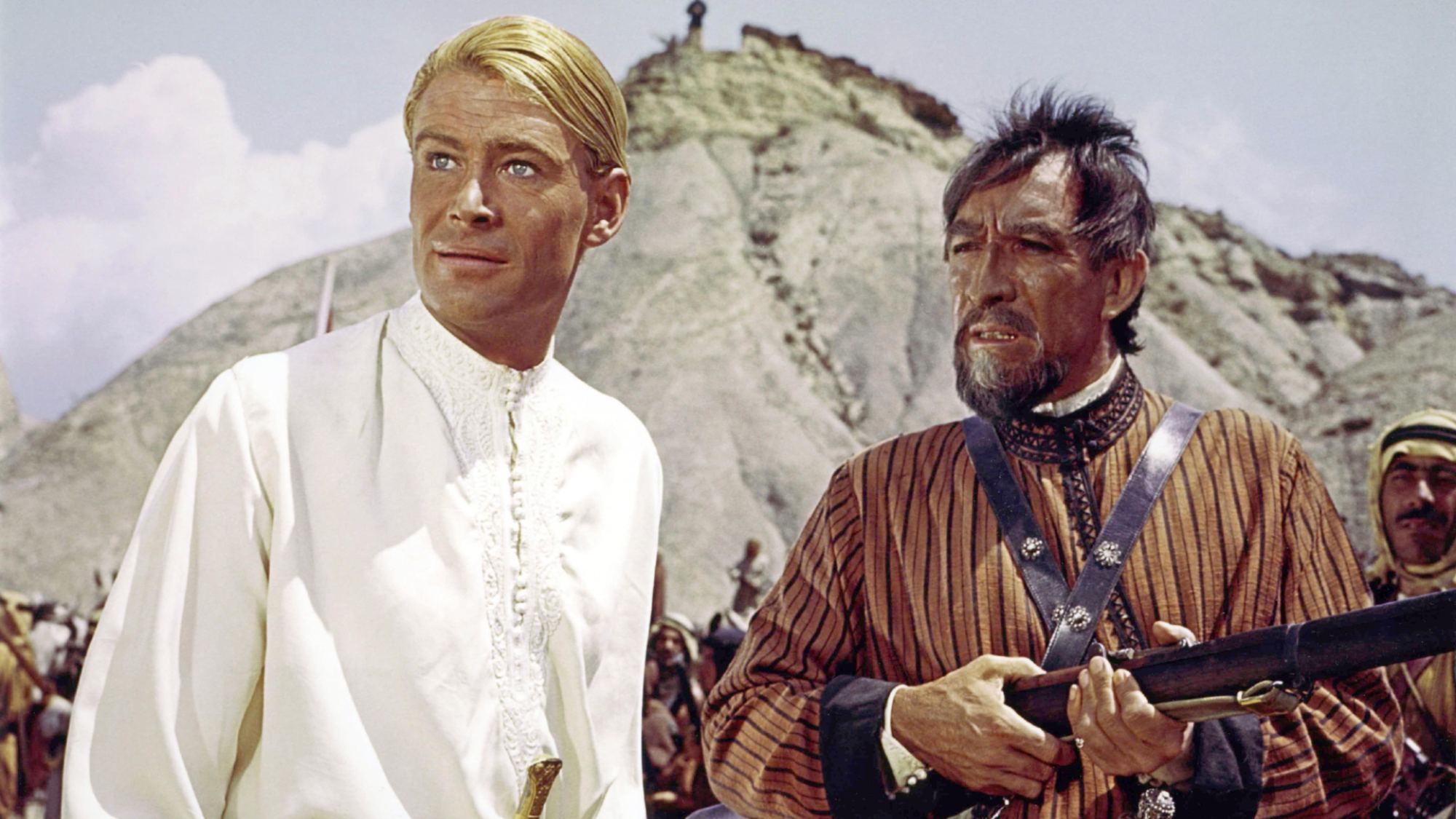
Max just added "Lawrence of Arabia" to its library of incredible movies. And that's a big deal for the streaming service — because it is the greatest movie ever made.
OK, some may argue that it's not the greatest movie ever made, though I'd disagree with them, But what is inarguable is that it's in the conversation for the greatest movie ever made.
Don't just take my word for it. The American Film Institute has its list of the 100 greatest American movies of all time and right at No. 7 is "Lawrence of Arabia" (it used to be fifth). It's been deemed "culturally, historically, or aesthetically significant" by the U.S. Library of Congress and selected by the National Film Registry for preservation.
It even has a perfect 100% rating on Metacritic. It's just one of 14 films ever to achieve that score. There are movies ahead of "Lawrence of Arabia" on the AFI list that didn't score 100% on Metacritic.
So it's not just me that says you need to see this movie. It's me plus a slew of expert film critics. Here's what "Lawrence of Arabia" is about and why you need to watch the greatest movie ever made now that it's on Max.
What is 'Lawrence of Arabia' about?
"Lawrence of Arabia" stars Peter O'Toole as T.E. Lawrence, a British Army officer during World War I. While initially a bit of a misfit character, he's drawn into service to assess the strength of Prince Faisal (Alec Guinness). Faisal is currently engaged in a war against the Ottoman Turks in the Hejaz region of the Arabian Peninsula and is hoping for British help to expel the Turks and establish an independent Arab state.
Lawrence has been ordered to observe only, but when he disobeys this order and advises Faisal to launch a surprise attack on the port city of Aqaba, Faisal is intrigued. Faisal acquiesces to Lawrence's request for men — led by Sherif Ali ib el Kharish (Omar Sharif) — to launch an assault on the city's Ottoman garrison.
To aid in this assault, Lawrence recruits Auda Abu Tayi (Anthony Quinn), leader of the Howeitat Bedouin tribe. This complicates things, as it adds another faction to Lawrence's growing Arab coalition of fighters, but ultimately Lawrence knows he cannot win with Auda's men.
'Lawrence of Arabia' is nearly in a class of its own among the best movies ever

First, let's get into the caveats about "Lawrence of Arabia." There are historical inaccuracies in the movie's portrayal of Lawrence and the Arab revolt. Some of these are classic movie-making choices, like the creation of Sherif Ali as a composite character representing multiple members of the Arab forces. But others are more egregious in the eyes of those who prefer largely factual historical dramas.
There's also the issue of the casting of Guinness as Faisal and the use of makeup to make him appear darker, also known as "brownface." While Guinness's swarthy appearance is certainly on the tasteful side and aimed at portraying the historical figure with accuracy, and not the exaggerated caricature associated with the use of brownface and blackface, it still merits mentioning and criticism of the choice is certainly not without validity.
Setting those criticisms aside though, there's truly no movie that better blends cinematography, practical effects, story, score and acting. The desert vistas are breathtaking, as is the camerawork. The Battle of Aqaba scene in particular is a masterclass in filmmaking, with an incredible combination of shots to film a battle sequence that still holds up today.
Again, this isn't only my opinion. "Lawrence of Arabia" earned 10 Academy Award nominations, winning seven, including Best Picture, Best Director, Best Cinematography and a Best Music Score win for Maurice Jarre's iconic score. The only Oscars it didn't win were Best Actor for O'Toole, Best Supporting Actor for Sharif and Best Adapted Screenplay. Two of those losses came at the hands of "To Kill A Mockingbird," and even I won't argue that Gregory Peck deserved the Oscar for his performance as Atticus Finch.
But "To Kill a Mockingbird" is a great example of why "Lawrence of Arabia" is nearly in a class of its own when it comes to the greatest movies of all time. The acting from Peck is incredible, but it's probably the most memorable part of the film. While it earned several nominations at the Oscars that year, including for Best Picture, Best Director and Best Score, it lost those nominations to (you guessed it) "Lawrence of Arabia." One movie was great, but the other was just that much better.
It's also tough to pick just one memorable aspect of the film. O'Toole, Sharif and Quinn's performances are memorable, as is the sweeping score set to the desert backdrop. The Battle of Aqaba is an unforgettable scene for any film student or cinephile.
So if you've never had the pleasure of watching "Lawrence of Arabia," head over to Max and hit play. Just make sure to set aside some time — at 222 minutes (including overture, intermission and end credits), it's the longest Best Picture winner ever.







